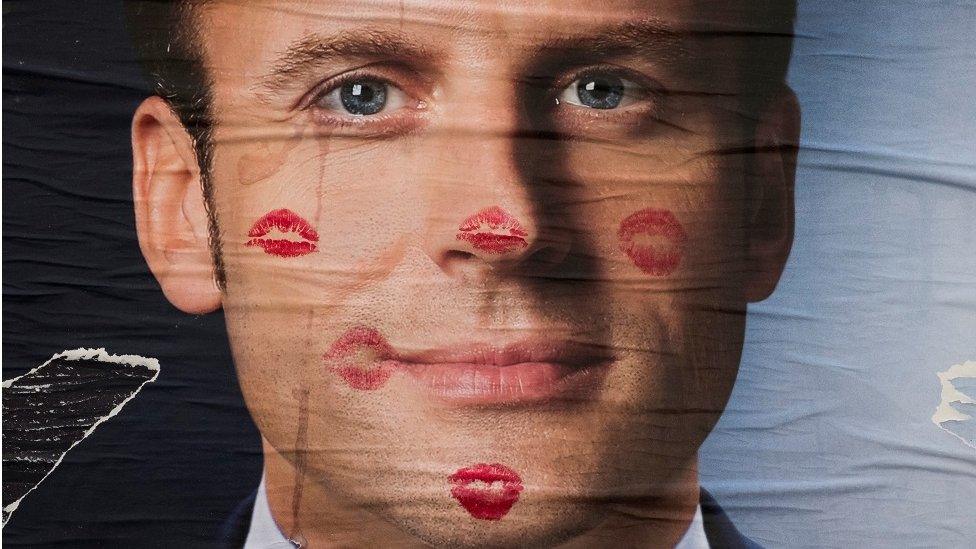Emmanuel Macron: What's inside the 'Big Mac'?
- Published
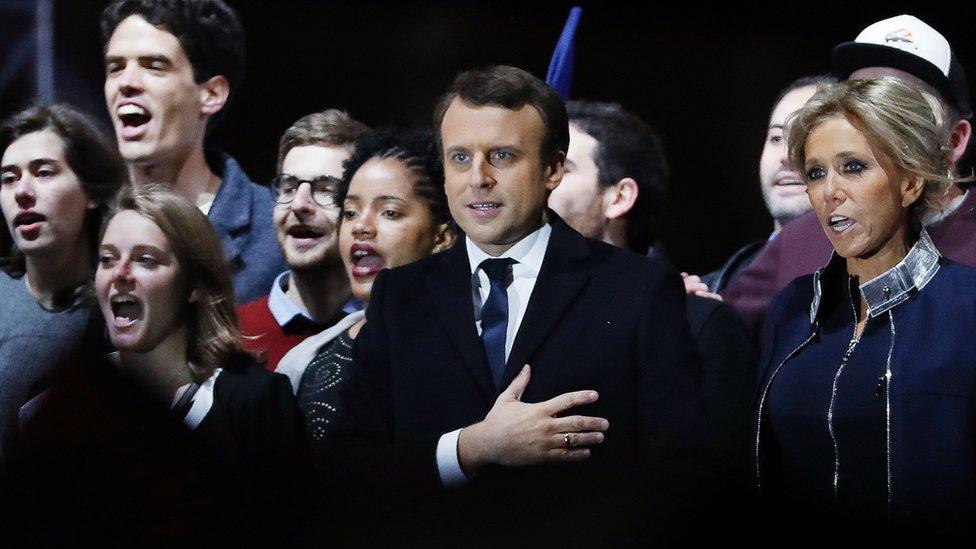
Emmanuel Macron promised his cheering supporters he would fight to heal France's divisions
As far as newspaper headlines go describing Emmanuel Macron's success, Metro's "Le Big Mac" is possibly the most eye-catching.
This is a big win - a huge win - for the 39-year-old former banker and virtual political newbie who will now become France's youngest leader since Napoleon Bonaparte.
What struck me as I watched his giddy supporters dancing, singing and waving the French flag so excitedly at his election party at the Louvre is how little is really known about him.
"What does Emmanuel Macron mean for France?" I asked them.
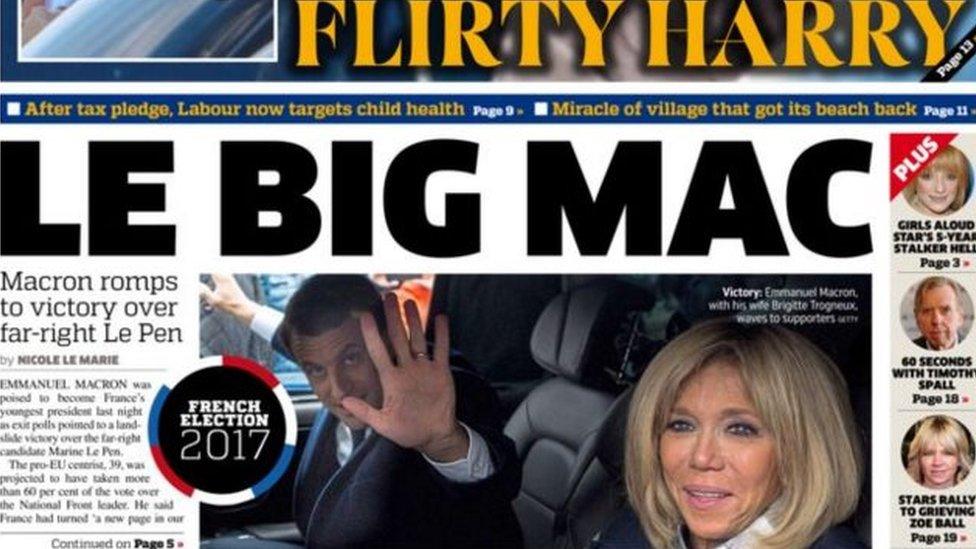
Responses were euphoric but not particularly precise.
"Hope" was a word I heard a lot; "something new". But when I asked about his political programme, eyes went blank.
And this is where the Big Mac comes in. Except that France has bought the burger without really knowing what's in it.
Winning over the rest
This world economic and political power and key EU player is about to be presided over by a politician whose person, party and policies are pretty much unexplored.
That's quite a gamble.
One Macron issue that people are very clear on, though, is that he is not Marine Le Pen.
That may seem screamingly obvious but it is largely the key to his electoral success.
French voters desperately wanted change - to stubbornly high youth unemployment rates, social inequality, a stagnant economy and the persistent terror risk.
They were keen to kick out the old guard - the traditional centre-left and centre-right parties that have governed France for decades - but they clearly favoured "safe" change over a new French revolution, offered to them by the far left and the far right.
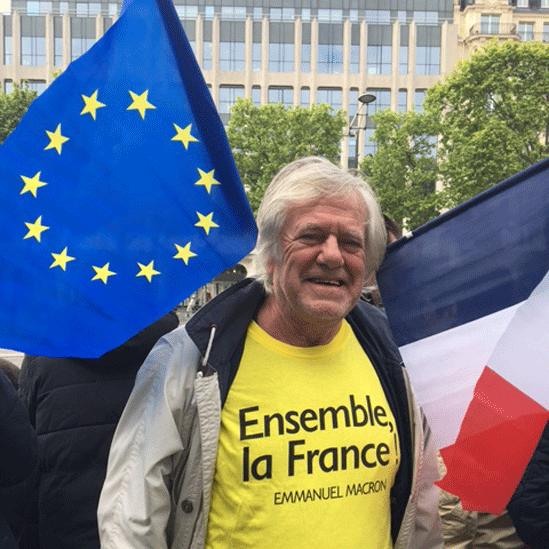
More than 20 million voted for Macron, but millions of others did not vote or spoilt their ballots
The fear and disgust in mainstream France at the very idea of Marine Le Pen as their national figure-head was palpable. Many Macron votes were simply by virtue of him not being her.
And yet she still garnered one in three presidential votes on Sunday. Millions more stayed away or spoiled their ballots.
Emmanuel Macron is known as the French establishment's anti-establishment figure.
This suggests it will now be quite a challenge to win over large sections of the French public.
Yes, he's promised a new, dynamic France: socially just yet business-friendly, neither left- nor right-wing. But can he really dance at so many weddings all at the same time?
Marine Le Pen's failure to win the presidency does not magically erase the social, economic and political reasons so many voters flocked to her in the first place.
These socio-political divisions will become screamingly obvious in France now as it heads towards parliamentary elections.
Horrified German?
The EU too should exercise caution before popping another champagne bottle.
If one Macron policy is well-publicised, it's his passionately Europhile credentials.
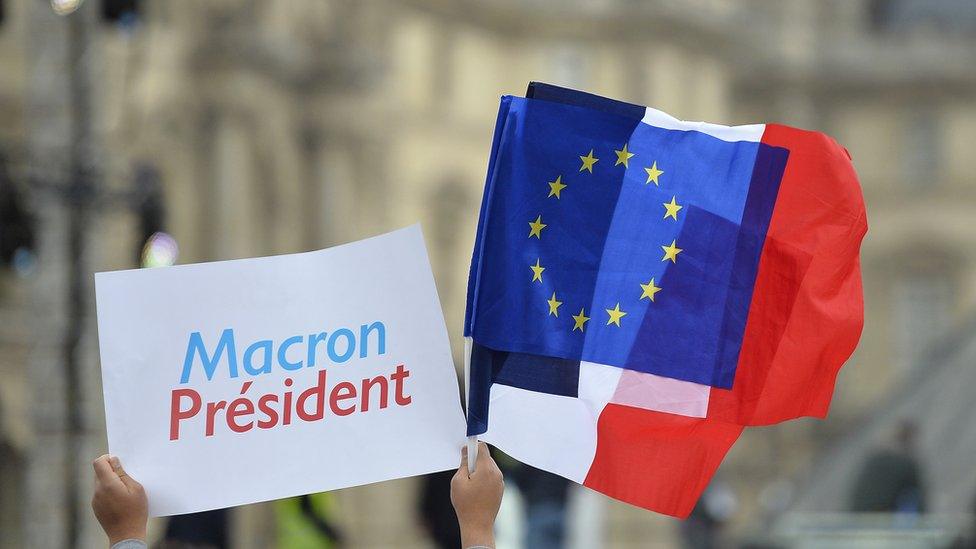
The president-elect is calling for EU reform but has conveyed a consistently pro-European message
EU flags waved alongside the French tricolour throughout his presidential campaign. He chose to make his first stage appearance after the election heralded by the tones of the EU anthem, Beethoven's Ode to Joy.
Brussels is cock-a-hoop that Eurosceptic nationalists have now been defeated at the polls in Austria, the Netherlands and France, with negligible chances of success for them in Germany this autumn.
But, and it's a big but, the fact that populist politicians from the far right (and in some countries like France also the far left) have performed strongly in elections shows there is no blank cheque for the status quo.
Voters expect change at home and in the EU.
Emmanuel Macron promises to be a mixed blessing for Brussels. His reform proposals for deeper Eurozone integration will horrify German taxpayers for starters.
Irresistible charm of France's new leader
His commitment to EU unity will also worry the UK ahead of the start of formal Brexit negotiations.
He's promised to be tough.
But is Emmanuel Macron flexing muscles he doesn't yet have on the domestic and EU front?
His challenge now with his fledging political party will be to survive next month's legislative elections with his credibility intact, so he can form the robust government needed to pass the reforms he promises.
- Published7 May 2017
